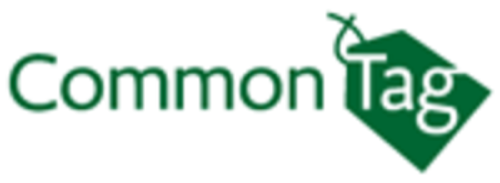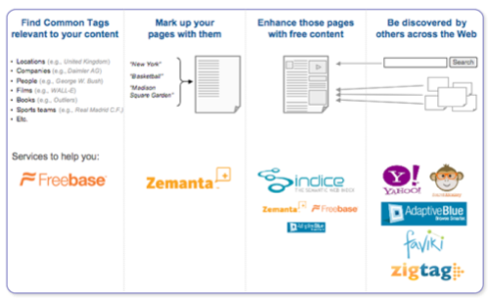Let’s suppose you uploaded some pictures of a trip to New York City to an online account. Do you tag them “New York City,” “NYC,” “newyork,” or all of the above? How do you know your content will be correctly identified and related to other content on the web? And if you come across the tag “Tesla,” how do you know whether it refers to the scientist, the car company, or the band?

Common Tag is a new tagging format that creates references to concretely defined concepts with their own metadata and URLs. With Common Tag, site owners can simply topic hubs, cross-promote content, and enrich pages with data, images, and widgets.
Currently, companies involved include AdaptiveBlue, DERI (NUI Galway), Faviki, Freebase, Yahoo!, Zemanta, and Zigtag.
According to the Common Tag website, “The Common Tag format was developed to address the current shortcomings of tagging and help everyone – including end users, publishers, and developers – get more out of Web content. With Common Tag, content is tagged with unique, well-defined concepts – everything about New York City is tagged with one concept for New York City and everything about jaguar the animal is tagged with one concept for jaguar the animal. Common Tag also provides access to useful metadata that defines each concept and describes how the concepts relate to one another. For example, metadata for the Barack Obama Common Tag indicates that he’s the President of the United States and that he’s married to Michelle Obama.”
The project aims to help make content as discoverable and connected as could reasonably be assumed. The creators also hope to make content more engaging. When a web app can determine what a piece of content is actually about, the UX improves exponentially. The website gives the example of a developer creating an app that uses an article about the most recent Star Trek movie and lets users purchase tickets on the same page. The site reads, “Since both the publisher and ticket service use Common Tag, the application is able to easily make the connection without having to guess at what the content of the two services is about.”

Tags are expressed using RDFa, a standard format for defining data in HTML. Relevant code can be found in the Common Tag Quick Start Guide. Interested parties can learn more in the Yahoo! Common Tag group.
According to a Q&A with partner company Zemanta, CTO, Andraz Tori, said the idea for Common Tags “started in informal discussion with Peter Mika from Yahoo! and research about what would be the easiest way to let publishers get more out of their content by semantically marking it up.” We’ve seen Common Tag as a vehicle to make Web content more discoverable, connected, and engaging.
“We then learned on previous efforts and decided that we need a full-blown ecosystem from day one. Not just academic support, but web industry support. As you can see the idea was well received.”
In terms of adoption, Tori stated, “This is the first time that this number of web companies have stepped together from day one to introduce a tagging standard. We tried to build on previous academic efforts. Over that we added business incentive to participate.”










